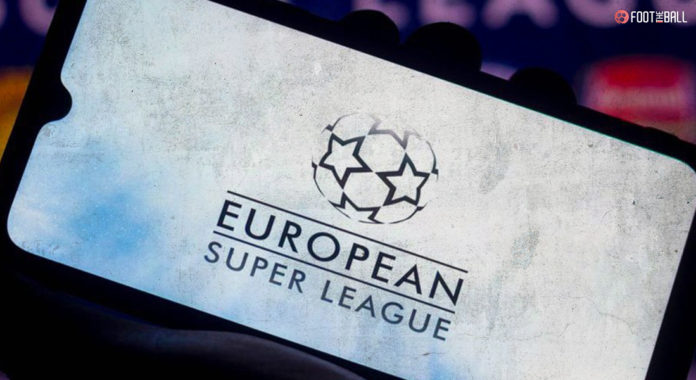They’re back. As we knew they would be. A new plan for the European Super League, featuring 60-80 clubs and no permanent members has now been published by A22 Sports Management – a sister company of the ESL promoting the idea.
A revised European Super League would open the door to up to 80 clubs a year across several divisions, its chief executive has said. A22 Sports Management is promoting a revision of the plans that collapsed in 2021 following the withdrawal of six Premier League sides and says that this time no members would be afforded a permanent seat at the table of a competition that would provide clubs with a guaranteed minimum of 14 matches per season.
While project backers A22 made great play of outlining their 10 principles, it is one core idea that matters most. The Super League in its current form is an attempt to create a Premier League-style competition that supplants the Champions League.
A further issue for the football establishment is that there are an increasing number of European lawyers who think that UEFA and FIFA are not fit for purpose. A growing argument is that, given the amount of money at stake and how the game has grossly evolved from even 20 years ago, let alone the period when these institutions were founded – the bodies should go back to governing and administration and the clubs should run their competitions, as with the Premier League.
So how has the latest proposal unfolded? FootTheBall breaks down the latest developments regarding the European Super League in 2023.
What is the European Super League?
Plans for a Super League first emerged in April 2021, a 20-team league with guaranteed spots for 12 founder clubs and three sides who were due to join at a later date. A further five spots would have been awarded based on sporting achievements, though the specifics of this were never made plain.
Within 48 hours, the English representatives – Arsenal, Chelsea, Liverpool, Manchester City, Manchester United and Tottenham had all withdrawn following a ferocious reaction from supporters. Atletico Madrid, Inter Milan and AC Milan also stepped back from plans.
Cristiano's 38 and seems like he's just getting started🔥#Cristiano #Messi #AlNassrFc pic.twitter.com/gX0CxHyHqn
— FootTheBall FC (@FootTheBallFC) February 10, 2023
In the latest developments, the European Super League has set out new plans to replace the Champions League with a 60 to 80-team competition. The latest idea would see each club involved play a minimum of 14 games per season, with no permanent members.
Reichart went on to claim a new format would also support domestic leagues, women’s football, the fans, financial sustainability, and the health of the players. And Real Madrid president Florentino Perez has claimed previously that there would be greater solidarity payments for clubs not competing in Europe.
Read More:
- Will Still: The wonder manager with no UEFA Pro license
- Harry Kane’s best records for both club and country
How will the new European Super League work?
Plans for the revised tournament would open the door for more clubs to be involved though no details were laid out to explain how the initial 80 would be selected and, crucially, what it would take for top clubs to lose their access to the minimum extra 14 games. The A22 chief executive added that national leagues would be “the foundation” of the game with revenue from the new league supporting the entire footballing pyramid.
This seems a long way from the original plans that promised the best teams playing in the best matches. In fact, it isn’t too dissimilar to the three-tiered system of European competition that UEFA currently has, stretching from the Champions League down to the Europa Conference League.
Some of this was evident in the very language used by A22’s John Hahn in statements to the media after Thursday’s relaunch. “Here in England, it wasn’t that long ago when the Premier League was formed that you heard the same words and issues – breakaway league – and now it is a nation.
Will the revised Super League be happening in 2023
It is perhaps a little early to say with certainty but the six Premier League clubs were so utterly stung by the opprobrium of their fans that it is hard to see them backing any future plan without some indication that their supporters would be up for it. The fact that the owners of Liverpool and Manchester United have concluded over the past two years that they do not want to retain full control of their clubs at least suggests that they do not see an immediate path to the sort of explosion in revenue that the Super League initially promised.
The problem is there are no clear solutions, even if the European Court of Justice judgement isn’t as damning on the Super League as many expect. It’s going to be very complicated to just impose a new competition. On the other side, however, the Super League clubs won’t just leave the structure of football. That is because it would essentially mean not being able to operate for a significant period of time until their event is up and running.
For now, the domestic leagues seem to be backing UEFA and with their support, it is hard to envisage a mass exodus from the status quo.
*This article is sponsored by Khelo India, a flagship program to inculcate a sporting culture in the country.




